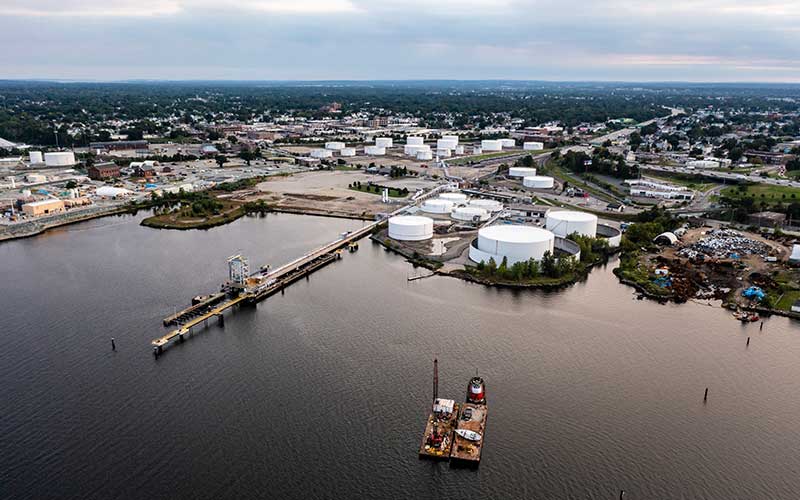
Shell Oil's facility in Providence, Rhode Island. Photo: EcoPhotography
January 4, 2022 (PROVIDENCE, RI) – Conservation Law Foundation (CLF) has filed a motion to force Shell Oil to turn over records regarding the company’s knowledge of climate and severe weather risks as part of an ongoing lawsuit. Shell’s Providence, RI facility sits at water’s edge and is unprepared for climate risks like flooding and extreme weather. Shell is refusing to release corporate documents that address its knowledge of or response to the impacts of climate change.
“Once again, Shell is trying every trick in the book to avoid coming clean about its involvement in the climate crisis,” said Darrèll Brown, Vice President of CLF Rhode Island. “It’s long past time for the public to hear the truth about what this big oil giant knew about climate impacts and when they knew it. The court should see through this charade and order the company to release these records so this case can move forward.”
The case is now in the discovery phase, where both sides are required to produce information relevant to the lawsuit. Yet Shell has refused to release documents related to its knowledge of climate change. The motion filed today seeks to force the company to release to CLF records regarding climate impacts and the vulnerability of the Providence facility, among other documents.
CLF’s lawsuit alleges that Shell has put Providence and Narragansett Bay in harm’s way by failing to prepare its fuel storage terminal for the worsening impacts of climate change. The company has a team in place to study climate-related risks to facilities like the one in Providence, but Shell is inexplicably claiming that records related to the team are irrelevant to this case.
For more information about the case against Shell, watch this video. This case is part of an ongoing series of CLF lawsuits targeting big oil facilities in Massachusetts, Rhode Island, and Connecticut.
CLF experts are available for further comment.
###
